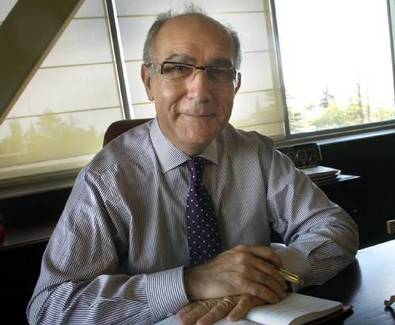NDUS Employee Blames Chancellor For Providing Public Information To This Blog

Below is the (hard to follow) written testimony from NDUS employee Linda Porter delivered to a House Appropriations subcommittee yesterday. The testimony details Porter’s accusations of data manipulation against Chancellor Shirvani and mentions this blog twice as the recipient of information from the chancellor.
Porter states that Chancellor Shirvani manipulated data, but as the Bismarck Tribune reports today, the numbers for graduation rates and other issues in the university system weren’t changed. Shirvani simply decided to put those numbers in the context of a different peer group.
We can agree or disagree with that decision, but that’s hardly data manipulation:
Linda Porter, whose title is interim system office liaison officer for reporting and information, told lawmakers Wednesday that Shirvani purposely compared the University of North Dakota and North Dakota State University to larger schools when providing data such as graduation rates to a House appropriations subcommittee earlier this month.
“When I was asked to provide the information, this was to make (UND and NDSU) look bad,” Porter told the House Appropriations Committee on Wednesday. “I have witnessed and heard (Shirvani’s) mission is to get rid of the presidents.”
I’ve been writing about facts such as graduation rates for North Dakota’s universities for years now, and it’s not the peer comparisons which make those numbers look bad. They’re just plain bad. A six-year graduation rate that hovers around 50% is atrocious, no matter who you choose to compare the data to.
As for Shirvani allegedly “leaking” information to this blog, I’d note that everything I published is a public record. In the past, it seems that it was standard operating procedure for the university system to make obtaining public records as difficult as possible for me. That Chancellor Shirvani, despite my having been very critical of him in the past, has decided to make access to that information a lot easier and more timely isn’t “leaking” anything.
That’s called transparency, which clearly the status quo in the university system doesn’t like. And they want to obscure the problems revealed by that data with wild accusations made against Shirvani.
As for my relationship with Chancellor Shirvani, which has become the topic of much gossip, I can say that after I was pressured (along with the High Plains Reader’s John Strand) by some in the legislature to write about Shirvani having an inappropriate relationship with a colleague (which I don’t believe to be true based on my investigation) I reached out him to talk about it. We had an off-the-record meeting to clear the air, and I am now convinced that regardless of whether or not we like the policies Shirvani is trying to implement, this campaign against him is wrong. It was at this time that Shirvani provided me with public records data about remediation and graduation rates, which I’ve written about.
The university presidents don’t like Shirvani and they are leveraging their hometown media as well as legislators loyal to them and politically well-connected alumni to push him out. But that’s not how the system is supposed to work. The university presidents don’t get a heckler’s veto. Or they shouldn’t, anyway. I fear that these incessant attacks, reported in an enthusiastically credulous matter by the media, are taking a toll on support for Shirvani.
Chancellor Shirvani seems intent on breaking through some of the spin that has obscured the poor performance of the state’s universities. Some don’t want that myth shattered and are now trying to muddy the waters with baseless accusations of data manipulation.
It’s shameful. The university system is out of control. I’ve been writing about that for years now. Shirvani is a reformer who, I believe, has ideas that could make things better. But this is a university system that simply does not want to be governed.







